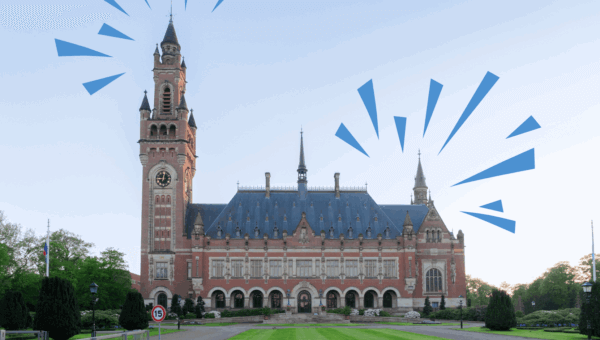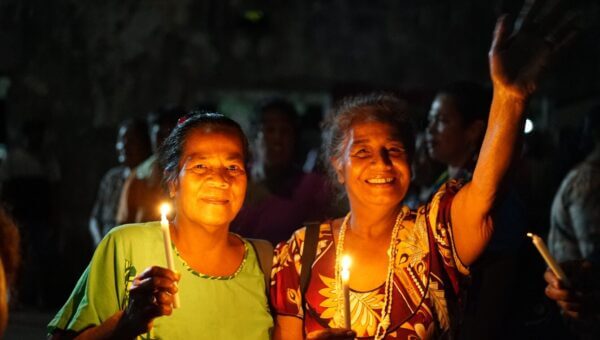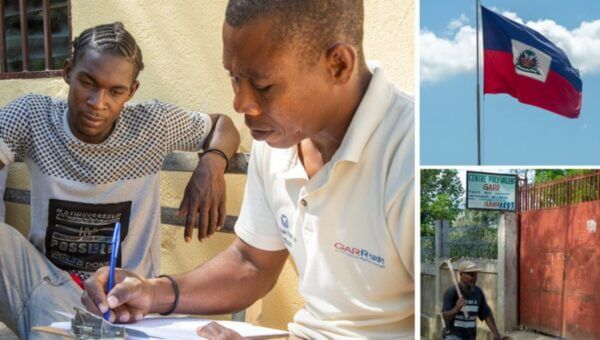On Tuesday, November 3, while the focus of the United States was on the election, Category 4 Hurricane Eta made landfall in Nicaragua, causing havoc in a large part of Central America, an area already facing major challenges as a consequence of the COVID-19 pandemic.
UUSC is closely monitoring the developments of Hurricane Eta. We have been checking with our partners in the region since Eta was forecasted to be a life-threatening weather event during the last days of October, making sure we provide them with as much support as possible during these challenging times. For that reason, UUSC committed funds to address some of the most urgent disaster recovery and response activities that our partners are leading.
Eta caused major destruction in Nicaragua immediately after landfall as a Category 4 hurricane; however, the tropical system has caused significant damage from Panamá to the south of Mexico primarily because of torrential rains causing massive floods and mudslides. The two most affected countries have been Honduras and Guatemala, in terms of lives lost and displaced individuals, as well as homes and infrastructure losses.
The north of Honduras has suffered the most significant impact in all of Central America, in particular the historically flooding vulnerable regions of Sula Valley, Tela, and Bajo Aguán as well as the coastal town of La Ceiba. There is damage registered in many other parts of the countries, especially among communities living in precarious settlements at risk of landslides.
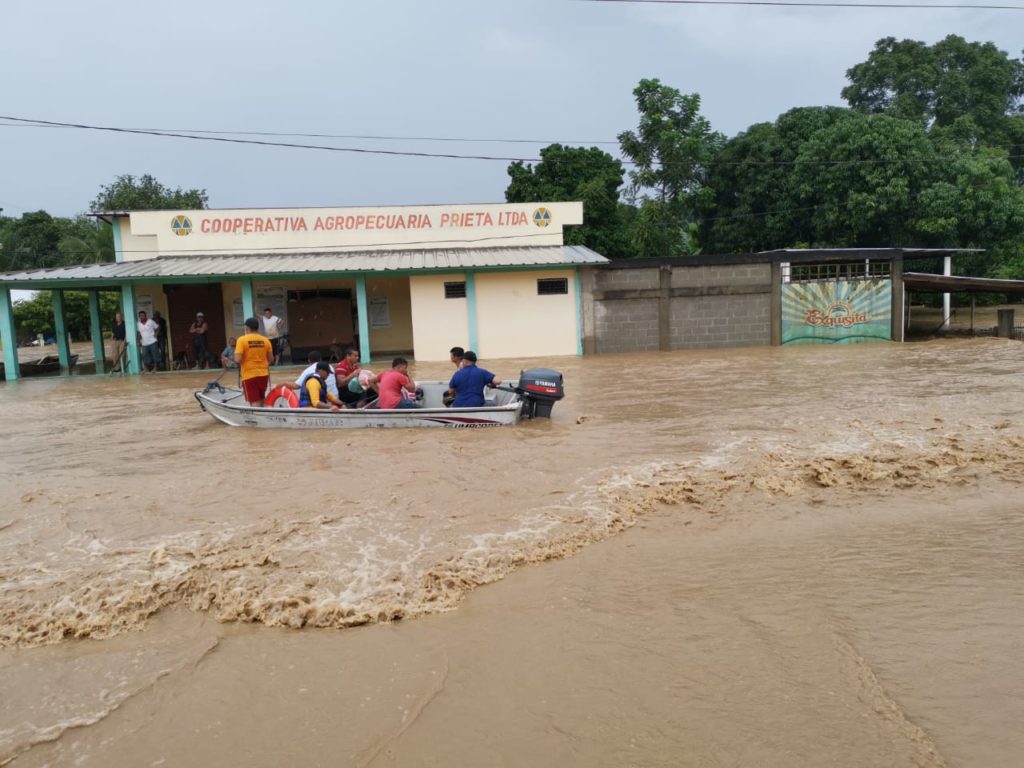
According to the latest estimates, there are 63 confirmed deaths—a figure that is very likely to increase considerably—and almost 2.5 million people affected, nearly 25 percent of the country’s population. Thousands of people are staying in precarious crowded shelters or simply sleeping on the streets. There are major concerns regarding COVID-19 infections, as well as outbreaks of cholera, dengue, and other infectious diseases, given the extensive damages to a health infrastructure already saturated before the storm.
In addition, 20 percent of the agricultural production of the country has been destroyed, while there are extensive damages to 113 roads and 29 bridges. Experts estimate that the total economic impact of Eta will be around $5 billion, equivalent to 20 percent of the country’s gross domestic product (GDP). Combined with the economic impact of the COVID-19 pandemic in 2020, damages could amount to nearly 50 percent of the GDP.
Honduran Politics Impact Response to Hurricane Eta
Civil society organizations are angry that the Honduran government’s negligence in responding to Eta has made things worse for civilians. On October 22, the president of Honduras designated Max Gonzáles—formerly a reggaeton artist known as “Killa the Tsunami”—as minister of COPECO, a government agency equivalent to FEMA in the United States. Gonzáles did not have experience in disaster management, which he acknowledged openly in interviews following his appointment.
The Honduran government moved a major holiday, “feriado morazánico,” from September to last week. The expectation of the government was that the holiday was going to boost the economy damaged by the pandemic, so the government relaxed COVID-19 prevention measures to allow for the free movement of people nationwide. While Nicaragua was evacuating the region at risk from Eta on Saturday, October 31, the government of Honduras downplayed the seriousness of the threat and promoted “feriado morazánico,” advising people to celebrate with caution. Honduras only sent out evacuation orders once many areas were already flooding, and several communities had evacuated by their own initiative.
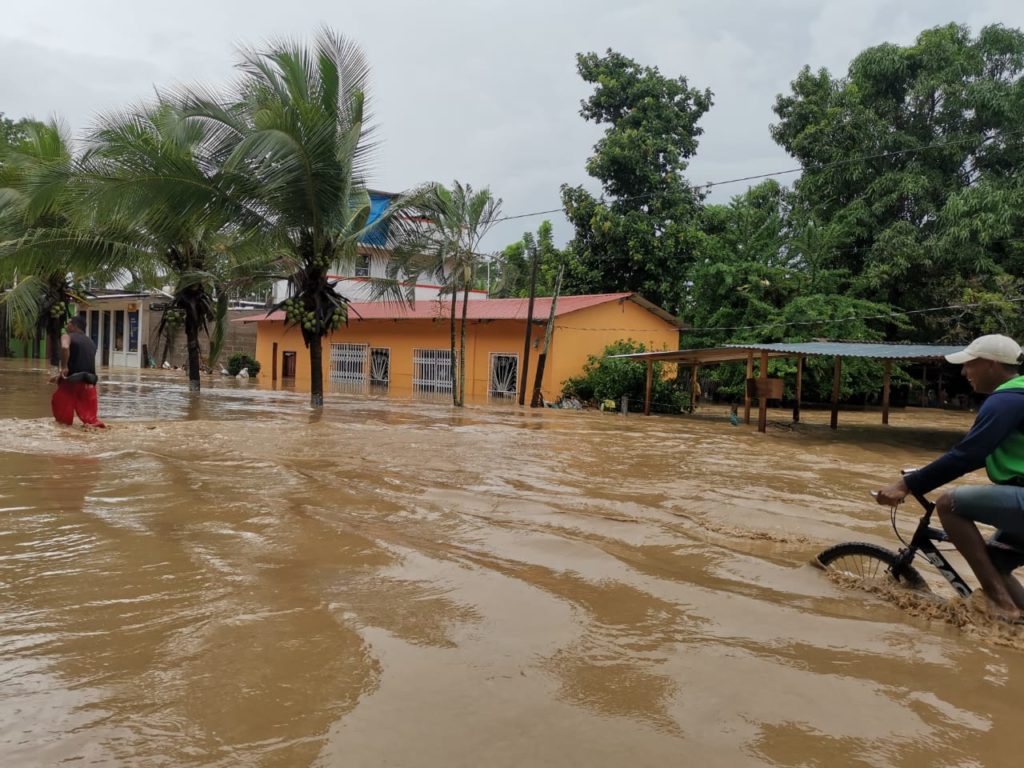
Echoes of 1998’s Hurricane Mitch, and the Challenges Ahead
Many observers in Honduras are comparing the impact of Eta to the devastation caused by Hurricane Mitch in 1998. That disaster caused damage equivalent to 70 percent of the national GDP and led to a major crisis with effects lingering today. At the time, Honduran political leaders disrupted international aid and cooperation efforts after extensive evidence of corrupt management of disaster funds led to a withdrawal of a large part of the promised funds from international groups.
The Honduran government’s lack of response led to a leadership vacuum that was filled by maras (gangs) that increased their presence and prominence across the country. In addition, the influence of international drug cartels also increased significantly during this period, a problem that Honduras has not been able to overcome.
The despair and misery that followed Mitch pushed large numbers of Hondurans to migrate to the United States, a process that was facilitated by President Clinton’s Temporary Protected Status (TPS) designation for Honduras in January 1999. This protection is still in place, despite the Trump administration’s attempts to end it in 2018. At UUSC, we are already monitoring discussions by Congress to extend the protection further to address the catastrophic new scenario caused by Eta.
UUSC’s response to Eta seeks to preemptively address some of the most pressing issues observed during the aftermath of Mitch. As part of our strategy to support the right to stay of people in Central America, we are working with experienced grassroots organizations to provide a quick response to urgent needs and assessments facilitating more effective contributions by international funders during the recovery phase of this crisis.
***
About UUSC: Guided by the belief that all people have inherent worth and dignity, UUSC advances human rights globally by partnering with affected communities who are confronting injustice, mobilizing to challenge oppressive systems, and inspiring and sustaining spiritually grounded activism for justice. We invite you to join us in this journey toward realizing a better future!
Photo Credit: FSAR (Fundación San Alonso Rodriguéz)

